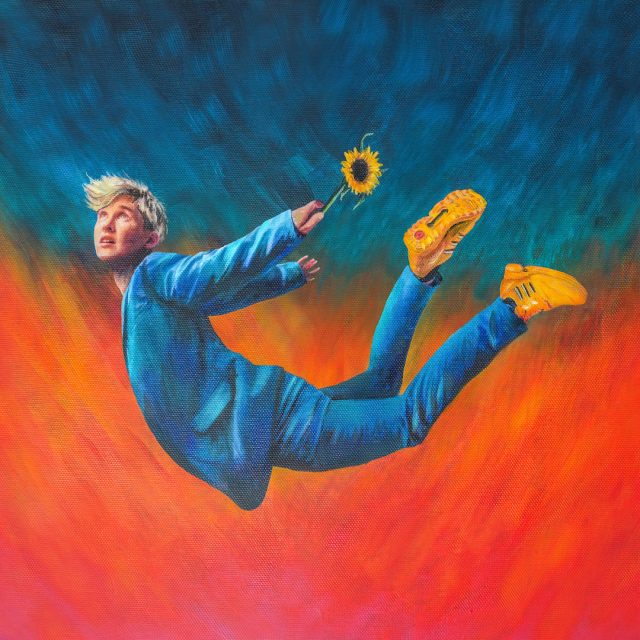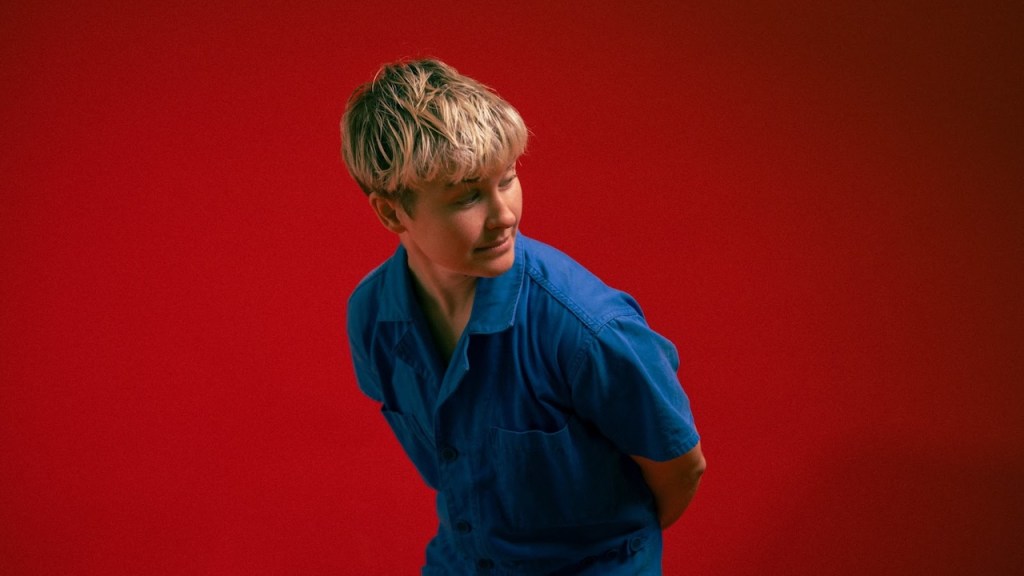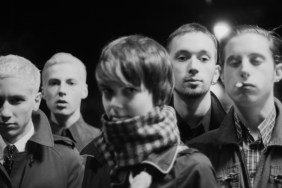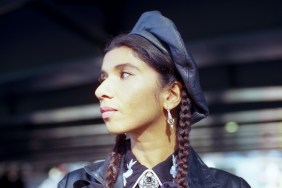Sydney indie-folk fave Alex The Astronaut won acclaim for 2020’s charming debut album, The Theory Of Absolutely Nothing. The artist otherwise known as Alex Lynn received an ARIA nomination for Breakthrough Artist. Now signed to Warner Music Australia, Alex is back with another COVID-era set in How To Grow A Sunflower Underwater.
Led by last year’s rousing single ‘Growing Up’, it’s more personal than The Theory Of Absolutely Nothing. The 27-year-old songwriter contemplates post-traumatic growth, ponders her autism spectrum diagnosis (in ‘Octopus’), caring for a former partner, and self-knowledge. Many of the songs are about being present.
Alex the Astronaut – ‘Growing Up’
The singer-songwriter also advances musically. Alex again worked in the studio alongside members of Brisbane band Ball Park Music, who encouraged her to be hands-on with the production – something she “really enjoyed”. “I felt like they’d taught me so much that by the second album, I could take a more active role,” Alex says. “It was quite empowering.”
Alex introduced us to her wry and wistful folk in 2016 with ‘Already Home’. The next year she temporarily transplanted to New York, studying maths and physics on a soccer scholarship at Long Island University.
Alex penned 2017’s ‘Not Worth Hiding’ as a letter to her teen self about coming out, and it became an unofficial anthem for the Yes vote leading up to the Australian Marriage Law Postal Survey. Alex’s recent single, ‘Haircut’, explores gender identity (“I’ll write I’m not a boy or a girl / I’m still filling that in”). She stresses its subjectivity while calling for openness and empathy.
Alex couldn’t tour behind The Theory Of Absolutely Nothing, but she’s primed for a long overdue Australian run in August following Splendour In The Grass. She also hopes to rejoin the international circuit.
Alex the Astronaut – How to Grow A Sunflower Underwater

Music Feeds: I was talking to Tasman Keith the other week and he mentioned using your studio to record A Colour Undone. Were you friends? How did your paths cross?
Alex Lynn: He supported me in Sydney on the tour that I did that wasn’t really a tour. I did eight shows at Lazybones in November, I think, the year before last year. And, yeah, he supported me. So I got to see him play about eight times, which was just such a treat. He’s so, so, so talented. I just kind of said, because he’s occasionally in Sydney, “If I’m away, do you wanna use my studio?”
I can’t remember where I was, but he used it for his album. It was really cool, because I came back in and on the whiteboard there was like all the songs from his album and then it’s Feature Album [on triple j]. So, some of the ones I remembered from the studio are now playing on the radio. I feel like a big cheerleader of Tasman Keith – he’s so good.
MF: Well, you both have storytelling in common. But I realised that this is the second album you’ve released against the backdrop of the pandemic – it seems an astonishing feat. I wondered what you took away from the experience of releasing The Theory Of Absolutely Nothing in 2020?
AL: I don’t really know. It feels like the first album was such a blur because everything was changing so quickly. It came out when we were in this very shifting environment. Everyone was learning Zoom. I did everything from my little house. And it was kind of stressful.
I think, this time, I’m really lucky where I’ve been able to travel a bit. I’ll be able to tour it a bit, whereas the last album, most of the songs I didn’t get to tour. But I guess the thing that I took away is that I’m really grateful to be able to go and do music again and go and play Splendour and then go on tour and play the album live and not take any of it for granted.
Alex the Astronaut – Ride My Bike
MF: You had incredible reviews for that first album. Do you ever read them – and do they matter to you?
AL: I do… I really appreciate when people listen to the songs and, I guess, realise the bits that I’d put a bit of thought into. I think the relationship between music journalists and musicians is that sometimes you guys spot things that I haven’t thought of [laughs].
My biggest thing that I work most on is the lyrics and the stories. So I think, yeah, when people can see what I mean in the lyrics and can kind of put into words an explanation for them in reviews, it’s nice.
It’s kind of like a teamwork situation. I don’t read them and put them on my wall and think, “Oh my god, how good am I?” It’s more like, “Oh, that’s nice, we put lots of work into that. I’m glad people can hear that and that it comes across in a good way.”
MF: You had a lot going on in your life as you approached How To Grow A Sunflower Underwater. What role was music playing at that point – did you see it as part of the therapeutic process?
AL: Yeah, well, I guess, at the start, I wasn’t really writing very much – which is really, really unusual for me, because I usually write a little bit every day. So I wasn’t writing at all.
The album was mainly a reintroduction to music for me and how to come to terms with all these very big things that I was experiencing. And so it took a lot longer to write all these songs.
It was a good indicator for me of how I was feeling; how I could write the music. Now, when I look back at some of the songs, it’s kind of like a litmus test of my state of mind. Some of the lyrics that I was writing at the time, I was like, “Oh, I think this is right – I don’t know.” Now I look back and I’m like, “Whoa, I was quite aware of how I was feeling” or “That’s funny that I knew that at the time, because I hadn’t quite put that into action yet.”
So it was therapeutic – like a few aspects of it I did take to my therapist and say, “I’ve been thinking about this a lot.”
MF: I love how you have both macro and micro themes on this album and you tell your stories that way. Is there one song on the album that you’re really keen for the world to hear?
AL: I feel like it’s funny picking a favourite. ‘Haunted’ for me was one that I wrote really easily. It’s funny, ’cause lots of the things that I was experiencing leading up to the pandemic, people experienced during the pandemic or have experienced now, unfortunately.
So, I think that knowing that people may hear these songs and be able to apply them to their own lives – [songs] like ‘Sick’ or ‘Haunted’ or ‘To Be Something Good’ – it’s nice to know that they may be helpful for other people and may be able to mean something else to someone else in their life.
Alex the Astronaut – ‘Haircut’
MF: People really are enjoying the single ‘Haircut’. It’s very allegorical. Can you tell us about that song?
AL: Well, I guess it took a long time to write. That was the first thing – it had a lot of different changes to it. I think, having been someone that during the marriage equality survey played a role with my own story, I was conscious of having to do that again.
It was a real privilege to get to do that the first time, but I think with something that’s quite private… When I released ‘Not Worth Hiding’, I was 21, I’d only just come out, and I was put into this role [that] I didn’t feel qualified for but I was really lucky to do. I learned a lot and I had the privilege of hearing other people’s stories and playing a positive role in people’s lives with that story.
I felt like, with ‘Haircut’, I wasn’t at that stage where I could say, “Everything’s fine and I feel absolutely fine about all of this.” That wasn’t where I was at – and that’s not where I’m at now.
I feel that, with gender stuff, the world has a long, long way to go. It’s still a really scary conversation to have day-to-day. So I think that I wanted to say in that song that I cut my hair and it was a good move – and that kind of was where I wanted to stop talking and just show that these are conversations that people are gonna have with their friends.
How to Grow a Sunflower Underwater is out now.
Further Reading
Alex the Astronaut Announces 2022 National Album Tour
Alex The Astronaut Calls Out Mark Latham For Online Bullying
Tasman Keith: “Being Happy Will Lead to Everything Else I Wanna Do”












